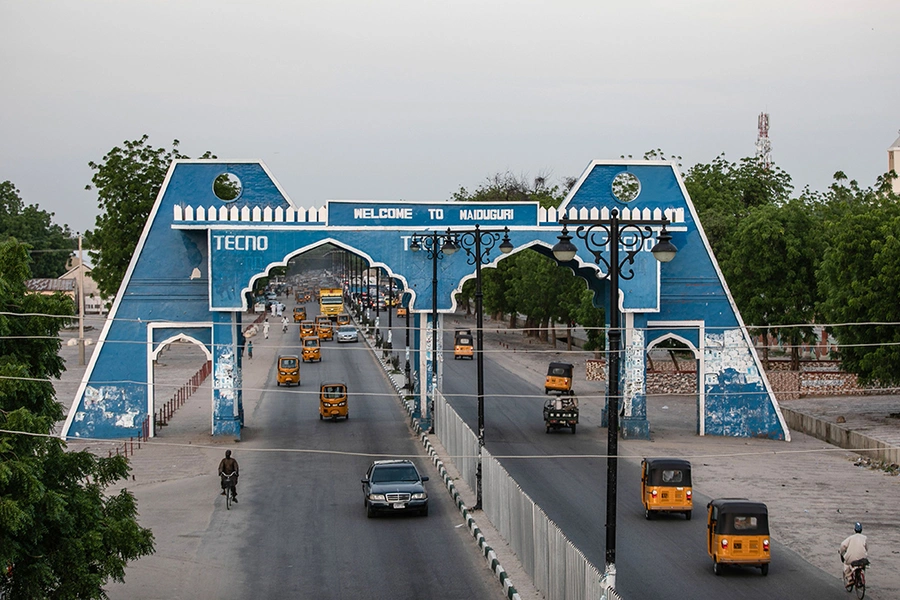Lost futures on Maiduguri’s streets
Education is a fundamental right and a powerful tool to lift individuals out of poverty and toward a brighter future. Yet, countless children in Maiduguri are deprived of this opportunity. Around the world, children start each day with lessons, activities, and the prospect of learning something new, but for many in Maiduguri, each day is […]

Education is a fundamental right and a powerful tool to lift individuals out of poverty and toward a brighter future. Yet, countless children in Maiduguri are deprived of this opportunity. Around the world, children start each day with lessons, activities, and the prospect of learning something new, but for many in Maiduguri, each day is a battle to survive. Their young faces, etched with lines of struggle, these children are being robbed of potential in marketplaces, on the streets, in spaces far away from any chalkboard or book.
This crisis is complex. It’s easy to blame an overwhelmed system, but the issue also lies closer to home. For many parents, schooling feels like an unattainable luxury. Generational poverty, a lack of opportunity, and the unyielding demands of survival have created a culture where formal education is undervalued or outrightly ignored.
Children are viewed as contributors to the family’s income rather than individuals with a right to an education. As a result, some children roam the streets without direction, while others are at risk of being withdrawn from school, even when their families could afford it, as parents prioritise immediate earnings over long-term benefits.
For those parents who might send their children to school, there’s often a lack of awareness about what education could mean for their futures. Although poverty and limited resources play a role, the lack of motivation or outright refusal to recognise education’s value is deeply concerning. Unless there’s a shift in mindset, the education system in Maiduguri will continue to struggle, and children will remain bound to the streets rather than books.
- PDP candidate pledges to build on Akeredolu’s legacy
- Gov Oyebanji swears in Justice Ogunmoye as acting chief judge
Watching these children is heart-wrenching. Boys in tattered clothes navigate traffic, selling sachets of water or snacks, while young girls carry heavy loads on their heads under the unrelenting sun. These innocent eyes, already burdened by life’s harsh realities, stand little chance against the cycle of poverty, illiteracy, and underemployment that traps so many families in Maiduguri. When education is neglected, their futures become an extension of their parents’ struggles, a continuation of hardship.
Although government initiatives and programmes are designed to promote free education, they feel like mirages beautiful but distant. Schools exist, but they’re often underfunded, lack proper facilities, and struggle to accommodate the overwhelming number of children who should be enrolled. The promise of free education rings hollow without the infrastructure to support it. For many families, these programmes are invisible or perceived as unreliable. Without more robust support and encouragement from both government and community leaders, these children may never realise the opportunities that education could provide.
The government can and must play a more active role. True free education requires commitment to improve funding, build more schools, hire qualified teachers, and provide essential resources to ensure classrooms are equipped to meet the needs of every child. Parents need to know that these schools exist, that they can rely on them, and that by enrolling their children, they’re setting them on a path toward a more promising future.
Education is not a luxury but a necessity, a gateway to endless possibilities. Parents, community leaders, and government officials must come together to ensure that Maiduguri’s children are given more than a life on the streets. Community awareness initiatives, especially those targeting parents, are essential. Local leaders, religious figures, and community influencers could drive change by highlighting education’s importance, emphasizing that a brighter future for their children begins with knowledge.
Maiduguri’s children deserve more than a life of struggle; they deserve to dream, to hope, and to learn. By investing in education, we are investing in the future not only of these children but of the entire society. These young ones should not be defined by a childhood spent outside of classrooms. Maiduguri must recognize that education is a right, not a privilege, and that providing it ensures a better future for all.
Gloria Yakubu,Department of Mass Communication,
University of Maiduguri
